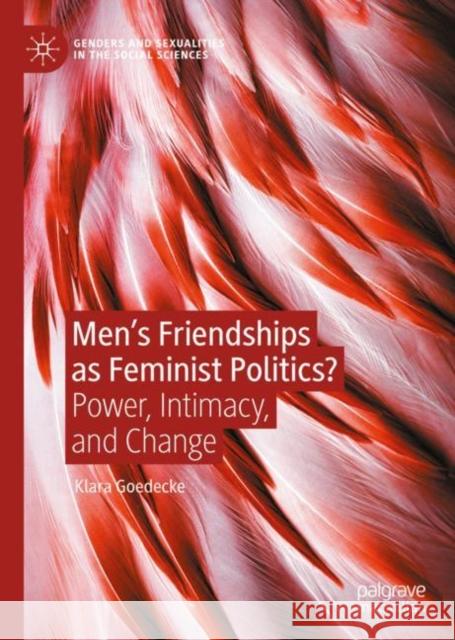Men’s Friendships as Feminist Politics?: Power, Intimacy, and Change » książka
Men’s Friendships as Feminist Politics?: Power, Intimacy, and Change
ISBN-13: 9783031117701 / Angielski / Twarda / 2022 / 198 str.
Men’s Friendships as Feminist Politics?: Power, Intimacy, and Change
ISBN-13: 9783031117701 / Angielski / Twarda / 2022 / 198 str.
(netto: 460,04 VAT: 5%)
Najniższa cena z 30 dni: 462,63
ok. 16-18 dni roboczych.
Darmowa dostawa!
This book discusses men’s friendships in relation to queer, discursive, and intersectional feminist theories. It analyses stories of intimacy, touch, hugs, and conversations, connecting these with current discussions within feminism and critical masculinity studies on “new” men, men’s political activism, and how friendships are lived and conceptualised in relation to heteronormative relationship ideals. Drawing on individual and dyadic interviews with middle-class Swedish men, all engaged in or sympathetic to feminist issues in some sense, this volume shows that Swedish gender equality ideologies as well as feminist, therapeutic, neo-liberal, and individualist discourses prevalent in the Western world structured the men’s friendships and their engagement with gender politics. Chapters cover friendship temporalities, gendered friendship ideals, friendship as men’s politics, and friendship as performed in interaction. Bridging the literatures of feminist research and friendship, the author points to tensions and contradictions in pro-feminist men’s political projects and in contemporary masculine positions.
This book discusses men’s friendships in relation to queer, discursive, and intersectional feminist theories. It analyses stories of intimacy, touch, hugs, and conversations, connecting these with current discussions within feminism and critical masculinity studies on “new” men, men’s political activism, and how friendships are lived and conceptualised in relation to heteronormative relationship ideals. Drawing on individual and dyadic interviews with middle-class Swedish men, all engaged in or sympathetic to feminist issues in some sense, this volume shows that Swedish gender equality ideologies as well as feminist, therapeutic, neo-liberal, and individualist discourses prevalent in the Western world structured the men’s friendships and their engagement with gender politics. Chapters cover friendship temporalities, gendered friendship ideals, friendship as men’s politics, and friendship as performed in interaction. Bridging the literatures of feminist research and friendship, the author points to tensions and contradictions in pro-feminist men’s political projects and in contemporary masculine positions.











